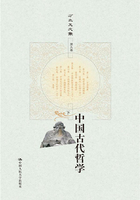And then mother would make us sit down under the old hawthorn tree (where we used to make our house among the great roots as stood above th' ground), to pick and tie up the heather. It seems all like yesterday, and et it's a long long time agone. Poor sister Sally has been in her grave this forty year and more. But I often wonder if the hawthorn is standing yet, and if the lasses still go to gather heather, as we did many and many a year past and gone. I sicken at heart to see the old spot once again. May be next summer I may set off, if God spares me to see next summer. "Why have you never been in all these many years?" asked Mary. "Why lass! first one wanted me and then another; and I couldn't go without money either, and I got very poor at times. Tom was a scapegrace, poor fellow, and always wanted help of one kind or another; and his wife (for I think scapegraces are always married long before steady folk) was but a helpless kind of body. She were always ailing, and he were always in trouble; so I had enough to do with my hands, and my money too, for that matter. They died within twelvemonth of each other, leaving one lad (they had had seven, but the Lord had taken six to himself), Will, as I was telling you on; and I took him myself, and left service to make a bit on a home-place for him, and a fine lad he was, the very spit of his father as to looks, only steadier. For he was steady, although nought would serve him but going to sea. I tried all I could to set him again a sailor's life. Says I, 'Folks is as sick as dogs all the time they're at sea. Your own mother telled me (for she came from foreign parts, being a Manx woman) that she'd ha' thanked any one for throwing her into the water.' Nay, I sent him a' the way to Runcorn by th' Duke's canal, that he might know what th' sea were; and I looked to see him come back as white as a sheet wi' vomiting. But the lad went on to Liverpool and saw real ships, and came back more set than ever on being a sailor, and he said as how he had never been sick at all, and thought he could stand the sea pretty well. So I told him he mun do as he liked; and he thanked me and kissed me, for all I was very frabbit with him; and now he's gone to South America, at t'other side of the sun, they tell me. Mary stole a glance at Margaret to see what she thought of Alice's geography; but Margaret looked so quiet and demure, that Mary was in doubt if she were not really ignorant. Not that Mary's knowledge was very profound, but she had seen a terrestrial globe, and knew where to find France and the continents on a map. After this long talking Alice seemed lost for a time in reverie; and the girls respecting her thoughts, which they suspected had wandered to the home and scenes of her childhood, were silent. All at once she recalled her duties as hostess, and by an effort brought back her mind to the present time. "Margaret, thou must let Mary hear thee sing. I don't know about fine music myself, but folks say Marget is a rare singer, and I know she can make me cry at any time by singing 'Th' Owdham Weaver.' Do sing that, Marget, there's a good lass." With a faint smile, as if amused at Alice's choice of a song, Margaret began. Do you know "The Oldham Weaver"? Not unless you are Lancashire born and bred, for it is a complete Lancashire ditty. I will copy it for you. THE OLDHAM WEAVER I Oi'm a poor cotton-weyver, as mony a one knoowas, Oi've nowt for t' yeat, an' oi've worn eawt my clooas, Yo'ad hardly gi' tuppence for aw as oi've on, My clogs are both brosten, an' stuckins oi've none, Yo'd think it wur hard, To be browt into th' warld, To be--clemmed, an' do th' best as you con. II Owd Dicky o' Billy's kept telling me lung, Wee s'd ha' better toimes if I'd but howd my tung, Oi've howden my tung, till oi've near stopped my breath Oi think i' my heeart oi'se soon clem to deeath, Owd Dicky's weel crammed, He never wur clemmed, An' he ne'er picked ower i' his loife. III We tow'rt on six week--thinking aitch day wur th' last, We shifted, an' shifted, till neaw we're quoite fast; We lived upo' nettles, whoile nettles wur good, An' Waterloo porridge the best o' eawr food, Oi'm tellin' yo' true, Oi can find folk enow, As wur livin' na better nor me. IV Owd Billy o' Dans sent th' baileys one day, Fur a shop deebt oi eawed him, as oi could na pay, But he wur too lat, fur owd Billy o' th' Bent, Had sowd th' tit an' cart, an' ta'en goods for th' rent, We'd neawt left bo' th' owd stoo', That wur seeats fur two, An' on it ceawred Marget an' me. V Then t' baileys leuked reawnd as sloy as a meawse, When they seed as aw t' goods were ta'en eawt o' t' heawse, Says one chap to th' tother, "Aws gone, theaw may see, Says oi, "Ne'er freet, mon, yeaur welcome ta' me." They made no moor ado But whopped up th' eawd stoo', An' we booath leet, whack--upo' t' flags! VI Then oi said to eawr Marget, as we lay upo' t' floor, "We's never be lower i' this warld, o'im sure, If ever things awtern, oi'm sure they mun mend, For oi think i' my heart we're booath at t' far eend; For meeat we ha' none, Nor looms t' weyve on,-- Edad! they're as good lost as fund." VII Eawr Marget declares had hoo clooas to put on, Hoo'd goo up to Lunnon an' talk to th' greet mon; An' if things were na awtered when there hoo had been, Hoo's fully resolved t' sew up meawth an' eend; Hoo's neawt to say again t' king, But hoo loikes a fair thing, An' hoo says hoo can tell when hoo's hurt. The air to which this is sung is a kind of droning recitative, depending much on expression and feeling. To read it, it may, perhaps, seem humorous; but it is that humour which is near akin to pathos, and to those who have seen the distress it describes it is a powerfully pathetic song. Margaret had both witnessed the destitution, and had the heart to feel it, and withal, her voice was of that rich and rare order, which does not require any great compass of notes to make itself appreciated. Alice had her quiet enjoyment of tears. But Margaret, with fixed eye, and earnest, dreamy look, seemed to become more and more absorbed in realising to herself the woe she had been describing, and which she felt might at that very moment be suffering and hopeless within a short distance of their comparative comfort. Suddenly she burst forth with all the power of her magnificent voice, as if a prayer from her very heart for all who were in distress, in the grand supplication, "Lord remember David." Mary held her breath, unwilling to lose a note, it was so clear, so perfect, so imploring. A far more correct musician than Mary might have paused with equal admiration of the really scientific knowledge with which the poor depressed-looking young needlewoman used her superb and flexile voice. Deborah Travers herself (once an Oldham factory girl, and afterwards the darling of fashionable crowds as Mrs Knyvett) might have owned a sister in her art. She stopped; and with tears of holy sympathy in her eyes, Alice thanked the songstress, who resumed her calm, demure manner, much to Mary's wonder, for she looked at her unweariedly, as if surprised that the hidden power should not be perceived in the outward appearance. When Alice's little speech of thanks was over, there was quiet enough to hear a fine, though rather quavering, male voice, going over again one or two strains of Margaret's song. "That's grandfather!" exclaimed she. "I must be going, for he said he should not be at home till past nine." "Well, I'll not say nay, for I have to be up by four for a very heavy wash at Mrs Simpson's; but I shall be terrible glad to see you again at any time, lasses; and I hope you'll take to one another." As the girls ran up the cellar steps together, Margaret said: "Just step in, and see grandfather. I should like him to see you." And Mary consented.
同类推荐
热门推荐
养老护理预防摔伤技巧
本系列教材是上海和佑养老集团经过多年研究、实践与探索,参考并结合国际上先进的养老护理知识与项目管理理念,为提高养老行业从业者的知识及技术水平而编写的,另外该套教材也可用于养老护理员的教育和培训。追妻无门:女boss不好惹
青涩蜕变,如今她是能独当一面的女boss,爱了冷泽聿七年,也同样花了七年时间去忘记他。以为是陌路,他突然向他表白,扬言要娶她,她只当他是脑子抽风,他的殷勤她也全都无视。他帮她查她父母的死因,赶走身边情敌,解释当初拒绝她的告别,和故意对她冷漠都是无奈之举。突然爆出她父母的死居然和冷家有丝毫联系,还莫名跳出个公爵未婚夫,扬言要与她履行婚约。峰回路转,破镜还能重圆吗? PS:我又开新文了,每逢假期必书荒,新文《有你的世界遇到爱》,喜欢我的文的朋友可以来看看,这是重生类现言,对这个题材感兴趣的一定要收藏起来。中国古代哲学(第九卷)(方立天文集)
本书沿着上书的思想脉络,围绕闻道之方,系统论述了中国古代名实观、知行观和真理观等认识论内容。本书还结集有关中国古代哲学的文章27篇,分别叙述了先秦哲学、汉代经学、魏晋玄学和隋唐哲学,阐述了中国哲学与唯物辩证思想的内在关联、中国古代唯物主义者与自然科学家的联盟,以及对唯心主义哲学的理论与作用的评价。简爱(青少版)
《简·爱》主要通过简·爱与罗切斯特之间一波三折的爱情故事,塑造了一个出生低微、生活道路曲折,却始终坚持维护独立人格、追求个性自由、主张人人平等、不向命运低头的坚强女性形象。 女主人公简·爱,幼失父母,从小寄养在舅舅家,因备受虐待而萌发反抗意识,进了罗沃德学校。毕业后,应聘来到桑菲尔德庄园当家庭教师,与主人罗切斯特互相产生了爱慕之情,但因发现罗切斯特早有妻室——一直被囚禁在庄园一间阁楼里的疯女人,简爱便只身逃离庄园,四处流浪,最后,因心中一直恋念罗切期她重又反回到他身边。这时,庄园已被烧毁,罗切斯特双目失明,手也残疾。简爱毅然和他结了婚,使他再度获得幸福。















